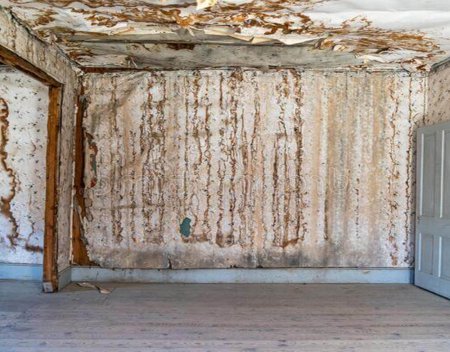Blog Categories
- Appliances Four
- Athletic Seating
- Auto Helpers
- Automated Stock Rooms
- Chocolate Four
- CuraFlo
- Damaged Goods Dating
- Flood Insurance Four
- Game Addict
- Hi Tech Pest Control
- HVAC Four
- Medical Labels Four
- Mental Health Four
- National CWS
- Promotional Ideas
- Seguros Lara Insurance
- Stem Cell Worx
- The Hidden Truth
- The Last Refuge
- The Mozilla Blog
- Video Editing Four
- Web Design Dev
- Website Development Four
- Windows Blog
water damage precautions

Preventing water damage in your home or property is crucial for maintaining its structural integrity and avoiding costly repairs.
Here are some tips to help you prevent water damage:
Regular Maintenance: Perform regular inspections of your property, including the roof, gutters, pipes, and appliances.
Look for signs of leaks, cracks, or other damage that could lead to water intrusion.
Roof Maintenance: Inspect your roof for missing or damaged shingles, and repair them promptly.
Keep gutters and downspouts clear of debris to ensure proper drainage.
Plumbing Maintenance: Check for leaks in pipes, faucets, and fixtures regularly.
Replace worn-out hoses and connections on appliances like washing machines, dishwashers, and refrigerators.
Appliance Maintenance: Inspect and maintain appliances that use water, such as water heaters, dishwashers, and washing machines.
Replace any old or malfunctioning parts that could lead to leaks.
Sump Pump Maintenance: If you have a sump pump, test it regularly to ensure it's functioning properly.
Consider installing a battery backup system to keep it running during power outages.
Landscaping: Ensure that the ground around your property slopes away from the foundation to prevent water from pooling near the walls.
Use mulch to help retain moisture in the soil and prevent erosion.
Sealants and Caulking: Check the seals around windows, doors, and other openings regularly.
Replace any damaged or deteriorated caulking to prevent water from seeping in.
Foundation Inspection: Inspect your foundation for cracks or gaps that could allow water to enter your home.
Seal any cracks with epoxy or masonry sealer to prevent water intrusion.
Proper Insulation: Insulate pipes in unheated areas of your home to prevent them from freezing and bursting during cold weather.
This is especially important in attics, basements, and crawl spaces.
Monitor Water Usage: Keep an eye on your water bill for any unexpected increases, as this could indicate a hidden leak.
Investigate promptly if you notice any changes in water consumption.
Emergency Preparedness: Know where your main water shut-off valve is located and how to turn it off in case of a plumbing emergency.
This can help minimize damage if a pipe bursts or a major leak occurs.
By following these preventive measures and staying proactive about maintenance, you can reduce the risk of water damage to your property and save yourself from costly repairs in the long run.
Re Posted From: water damage precautions

Preventing water damage in your home or property is crucial for maintaining its structural integrity and avoiding costly repairs.
Here are some tips to help you prevent water damage:
Regular Maintenance: Perform regular inspections of your property, including the roof, gutters, pipes, and appliances.
Look for signs of leaks, cracks, or other damage that could lead to water intrusion.
Roof Maintenance: Inspect your roof for missing or damaged shingles, and repair them promptly.
Keep gutters and downspouts clear of debris to ensure proper drainage.
Plumbing Maintenance: Check for leaks in pipes, faucets, and fixtures regularly.
Replace worn-out hoses and connections on appliances like washing machines, dishwashers, and refrigerators.
Appliance Maintenance: Inspect and maintain appliances that use water, such as water heaters, dishwashers, and washing machines.
Replace any old or malfunctioning parts that could lead to leaks.
Sump Pump Maintenance: If you have a sump pump, test it regularly to ensure it's functioning properly.
Consider installing a battery backup system to keep it running during power outages.
Landscaping: Ensure that the ground around your property slopes away from the foundation to prevent water from pooling near the walls.
Use mulch to help retain moisture in the soil and prevent erosion.
Sealants and Caulking: Check the seals around windows, doors, and other openings regularly.
Replace any damaged or deteriorated caulking to prevent water from seeping in.
Foundation Inspection: Inspect your foundation for cracks or gaps that could allow water to enter your home.
Seal any cracks with epoxy or masonry sealer to prevent water intrusion.
Proper Insulation: Insulate pipes in unheated areas of your home to prevent them from freezing and bursting during cold weather.
This is especially important in attics, basements, and crawl spaces.
Monitor Water Usage: Keep an eye on your water bill for any unexpected increases, as this could indicate a hidden leak.
Investigate promptly if you notice any changes in water consumption.
Emergency Preparedness: Know where your main water shut-off valve is located and how to turn it off in case of a plumbing emergency.
This can help minimize damage if a pipe bursts or a major leak occurs.
By following these preventive measures and staying proactive about maintenance, you can reduce the risk of water damage to your property and save yourself from costly repairs in the long run.
Re Posted From: water damage precautions

